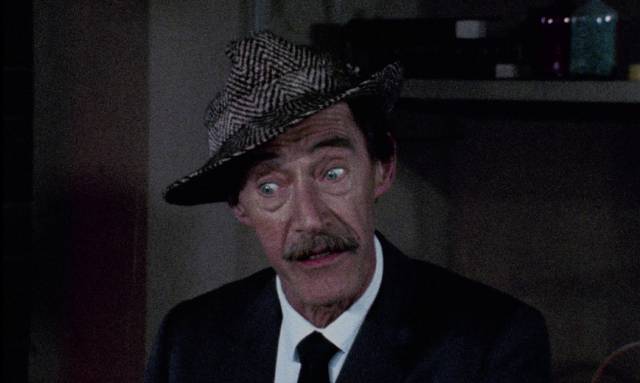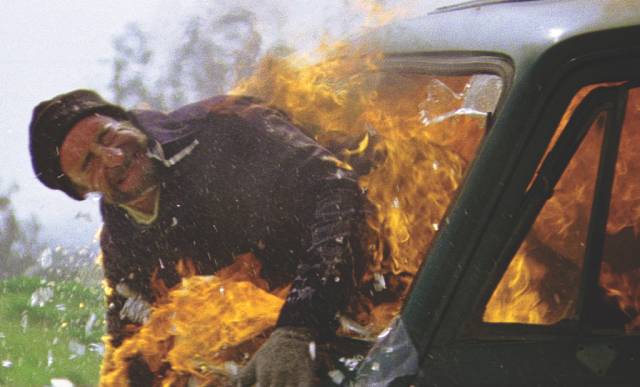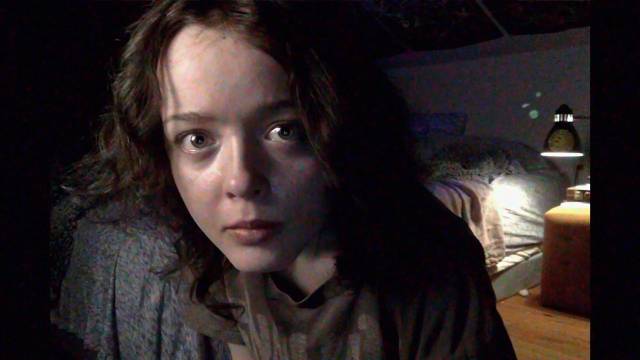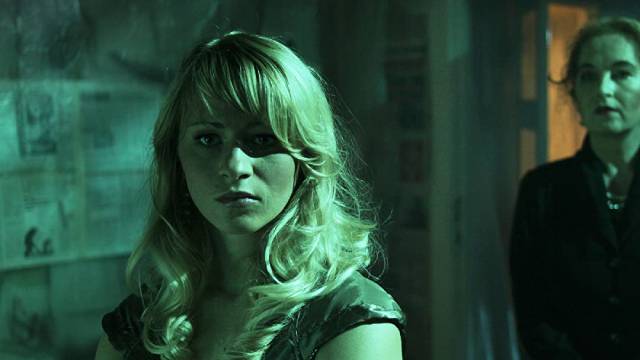
Yet more notes on recent viewing, featuring horror – both high and low end – some documentaries and action movies, gritty realism and slick fantasy … eclectic and somewhat random.

During an eight-month visit to Hong Kong in 1980-81, I took out a membership in a cinema club called Studio One. I recently came across the eight monthly schedules for their screenings and discovered that my memory of the movies I’d been to see varied widely. What makes one thing stick while another fades away? Damned if I know!

More recent viewing, with excellent restorations of classic fantasies by Arrow – Roger Vadim’s Barbarella (1968) and John Milius’ Conan the Barbarian (1982); a pair of impressive German film school projects – Tilman Singer’s Luz (2018) and Lukas Feigelfeld’s Hagazussa (2017); a couple of entertaining Australian features which mix fiction and documentary in interesting ways – Brian Trenchard-Smith’s Stunt Rock (1978) and Aaron McCann and Dominic Pearce’s Top Knot Detective (2017): and Shredder Orpheus (1990), a low-budget indie version of the Orpheus myth made by Seattle musicians and skateboarders.

In addition to their own regular schedule of releases, Vinegar Syndrome serves as an umbrella for an eclectic (and seemingly ever-growing) collection of small labels, many of which specialize in titles so far out on the fringe that their appeal lies in their strangeness and sheer audacity — like Pathogen (2006), a zombie movie made by 12-year-old schoolgirl Emily Hagins, or Final Flesh (2009), an experiment in which copies of a script were sent to producers of on-demand fetish porn who were free to film Vernon Chatman’s absurd apocalyptic family drama however they saw fit. The latest batch I received includes these, plus a sordid made-in-Florida slice of exploitation called Satan’s Children (1975), the faux ’80s local TV broadcast WNUF Halloween Special (2013), and a pair of more polished movies closer to the mainstream: Out of Order (1984), a claustrophobic German thriller about four people trapped in an elevator, and We’re All Going to the World’s Fair (2021), about an isolated teenager seeking connection in a potentially dangerous on-line cult.

I had to overcome numerous unforeseen difficulties to see Tears of Kali (2004), the first feature by German director Andreas Marschall (Masks, 2011), a stylish and artful collection of three loosely connected horror stories linked to a dangerous cult; each story centres on a couple of characters caught in psychologically tense conflict with occasional eruptions of graphic physical violence.

Bertrand Tavernier’s epic eight-part documentary Journeys Through French Cinema (2017) offers a personal and idiosyncratic history rooted in the filmmakers personal passions; Enzo G. Castellari’s The Big Racket (1976) and The Heroin Busters (1977) showcase the cynical, violent action of Italian genre movies of the ’70s; Andreas Marschall turns homage into effective horror in the retro-giallo Masks (2011); and Puloma Basu and Rob Hatch Miller’s documentary Other Music (2019) captures an experience all-but-lost today with their account of the final days of a great independent record store in New York City.

Vinegar Syndrome distributes a number of smaller labels which offer a wide range of genre releases, from the ultra-low-budget Wakaliwood productions of Nabawana I.G.G. in Uganda to the impressively polished small-budget sci-fi of Chris Caldwell and Zeek Earl’s Prospect (2018), from the gritty ’80s exploitation of Norbert Meisel’s Walking the Edge (1983) to the mythic spaghetti western-noir of Roland Klick’s Deadlock (1970).

A pair of Blu-rays from England showcase the final works of major artists who were considered at the time to be in decline: Laurel and Hardy’s last feature, Atoll K (dir. Leo Joannon, 1951) is a bittersweet mess which captures the Boys’ enduring charm while making their mortality all too clear, while Fritz Lang’s The Thousand Eyes of Dr. Mabuse (1960) comes full circle by reviving his Weimar criminal mastermind in a Cold War context which paved the way for James Bond’s high-tech thrills.